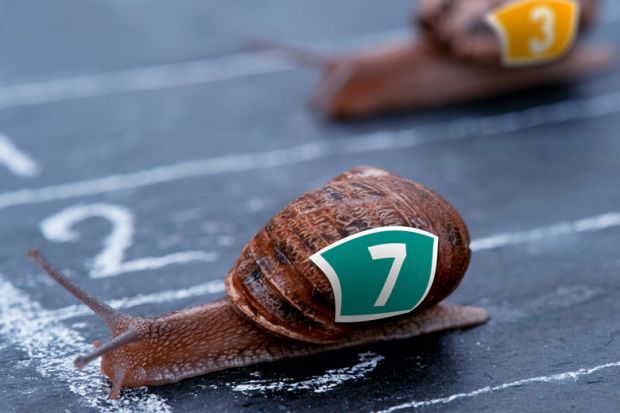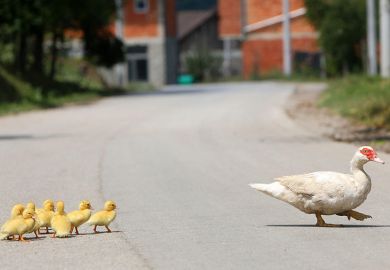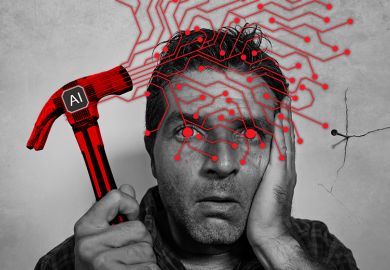I’m close to finishing my doctorate and the job market in my field is grim. Everyone I know is concerned about whether they will be able to do what they’ve always wanted to do: think deeply about their subject for the rest of their lives.
Fortunately (or unfortunately), I have a sort of salutary hubris about this matter, which frees me to worry about a different problem. What if, when I land a position, I find that the job has radically changed?
Those of us who occasionally glance up from our dissertations and applications are aware of the encroachments of administrators, the reduction of students to infants and consumers, the conflation of teaching with content delivery, the confusion of crass materialism with social relevance and the general diminishment of the university as an idea and institution. And we hope that when our turn comes (if it does), our vision will not have been so narrowed that we lose the memory of what we wanted an academic position to be.
I have two fears in particular. First, I’m afraid of accountability. I don’t mean that I am afraid of being held responsible; in fact it’s because I crave responsibility – which is the same thing as freedom – that I always wanted to become an academic. What scares me is being measured, because that’s what “accountability” has come to mean. It’s true that what gets measured gets done, but the corollary is that what can’t be measured will not.
A teacher does lots of measurable things, of course. But teaching itself can’t be accounted for because it’s not a set of tasks and it doesn’t have paperwork “outcomes”. To teach is not to transmit information. To teach is to shape someone’s character: to awaken the desire to learn. The teacher isn’t a standardised conduit whose efficiency can be tested: she’s a model, and she is finally unique. I believe this because I’ve had models of my own, whose approach was: “I found something interesting: come examine it with me.”
Second, I’m afraid of productivity. I’d like to avoid becoming more “efficient” and I’m not too sure about “getting things done”. Of course I want to do good work and to share it with people who think it matters to get things right. I want to do my job productively. But that’s different from turning “productivity” into my job.
We’re talking about the crucial distinction between ends and means. One reason we confuse them is that, when it comes to higher education, it is more difficult to reach consensus on the latter. But, look: the end of higher education must have something to do with the freedom to think. And what if the thought I freely think is that we should all be less busy? Should I get busy thinking about that? It’s absurd to desire productivity for its own sake. Isn’t a university supposed to be a place where such absurdities lose a little bit of their power over us?
If we can keep ourselves afloat on the surface of these pressures, we can keep higher education alive. How much we can do about the larger social and economic forces that help produce the pressures is another question. I think we must organise to resist them. But maybe the best thing we can do in the long run is to voice and redouble our passion for the craft.
On paper, and in the minds of many bureaucrats, the role of “academic” may well have become something ugly and vapid by the time my generation starts to take it on. But in the real world of our classrooms, we will still be able to point out to the next generation that there are things to live for that can’t be counted and shouldn’t be rushed. We can show our students that there are reasons for doing their work that have little to do with grade point averages and résumés, and that there is a pleasure in living that is different from the pleasure of winning the game.
At least, I hope we’ll be able to do that. Maybe we won’t. Nothing is guaranteed against loss.
Adam Benjamin Smith is a PhD candidate in politics at Brandeis University.
POSTSCRIPT:
Print headline: Productivity displacement
Register to continue
Why register?
- Registration is free and only takes a moment
- Once registered, you can read 3 articles a month
- Sign up for our newsletter
Subscribe
Or subscribe for unlimited access to:
- Unlimited access to news, views, insights & reviews
- Digital editions
- Digital access to THE’s university and college rankings analysis
Already registered or a current subscriber?




